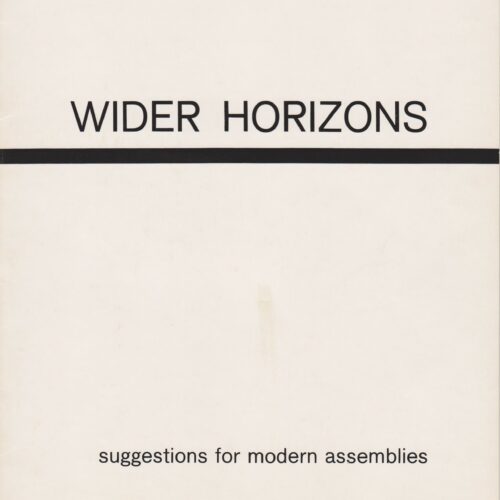

I suggest that the assembly we really want is an act of celebration, rather than worship. There is value in bringing the whole school together for a short time each day with dignity and formality, to celebrate our happinesses: our delight in each other’s company, in nature, in the work done in the school, in our relationships at school and outside, in our common aspirations and dreams.
June Smith, ‘Thoughts on Infant Assemblies’ in Wider Horizons
Wider Horizons: Suggestions for Modern Assemblies was produced by the British Humanist Association (now Humanists UK) in the early 1970s, part of ongoing efforts by the BHA to make the school curriculum more inclusive. The pamphlet was ‘the work of a group of teachers, some of them humanists, meeting at the invitation of the British Humanist Association’, and was intended to be a first step in offering suggestions on topics and materials for school staff and teachers to use in assemblies.
Among its contributors were James Hemming and John White, both of whom were actively involved in the BHA’s efforts to see humanism represented on the curriculum. Campaigning for fair and balanced education about religious and non-religious beliefs and values, and to see acts of ‘collective worship’ replaced by inclusive assemblies, remain central to Humanists UK’s education work today.
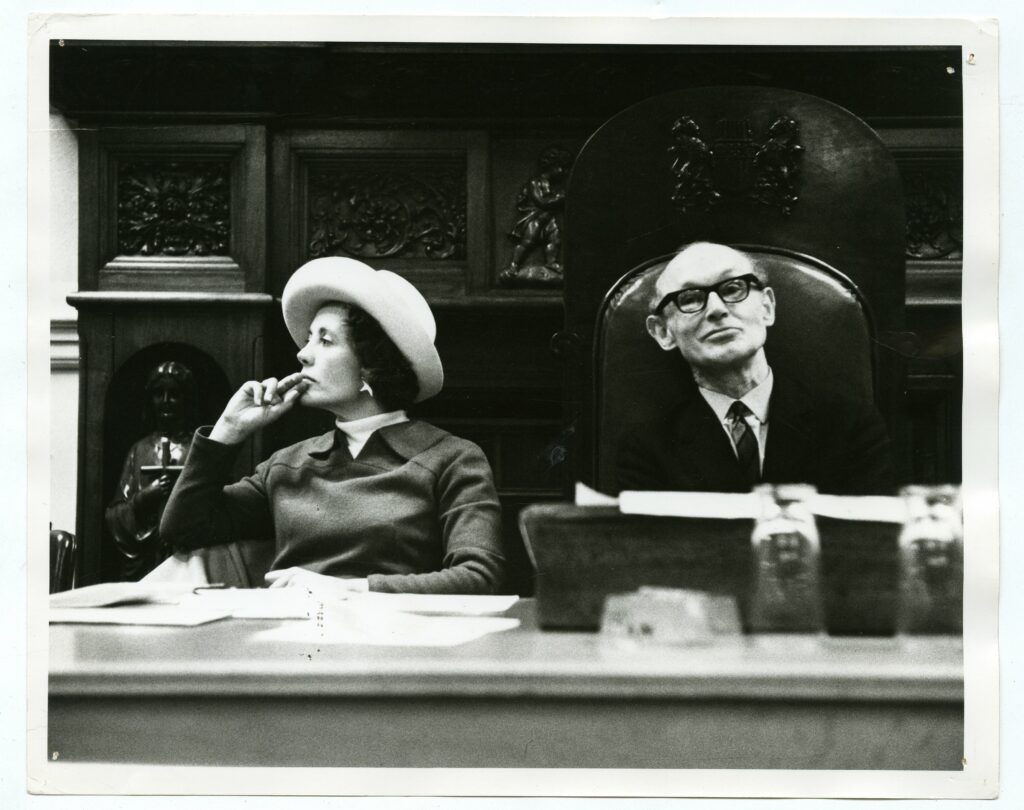
The pamphlet’s introductory text is reproduced below, and Wider Horizons can be viewed in its entirety using the PDF viewer.
Introduction
School assemblies are falling into disrepute because they are usually treated as formalities–the image of a hymn, a prayer and an announcement about dinner money is not entirely caricature. The well-worn paths are easiest to follow, and who on a hard-worked staff is going to devote time and energy to devising something new?
But the educational objections to the sort of assembly described above extend beyond the lack of participation so evident on the part of the children. Increasingly, teachers and others are worried about the assumption that all children, from whatever background of belief or non-belief, can join in Christian worship. ln schools serving areas with a high proportion of immigrants the absurdity becomes more glaring. Yet to tackle the problem by withdrawing children of different beliefs not only removes the main unifying purpose of an assembly, it is also positively divisive.
Many schools are experimenting with forms of assembly which should be acceptable to all children. ln other schools a teacher may want to do this but may be inhibited by the lack of precedent, by the work involved in finding a new way. This booklet is for him. lt is the first product of a group of teachers, and is based on their work and experience in schools from infant to secondary level. The demands they received for such material convinced them of the need.
The assemblies exampled in this collection are not intended as definitive, nor to be followed blindly. The hope is that they will encourage other teachers to experiment for themselves. If readers will tell of their ideas and experiences they will be assisting the production of a larger and more generally helpful book.
The contributors:
Betty M. Bull Head Teacher of an infant school
Judith Dean Head of Year in a comprehensive school
Elaine Dunford Headmistress of a girls’ secondary school
James Hemming Educational psychologist, writer and broadcaster
June Smith Teacher in an infant school
John White Head of the English Department in a comprehensive school
Nada Woolley Headmistress of a junior school
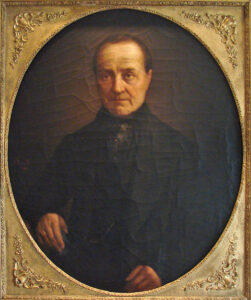
Auguste Comte was a French writer, philosopher, and social scientist, whose theory of positivism was a significant influence on the […]
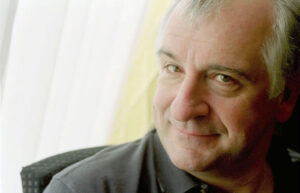
Isn’t it enough to see that a garden is beautiful without having to believe that there are fairies at the […]
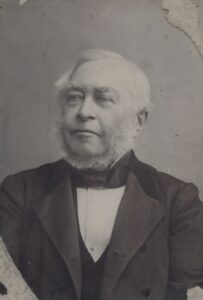
…the smallest experience is sufficient to convince that it is more pleasing, to be at peace than at enmity with […]
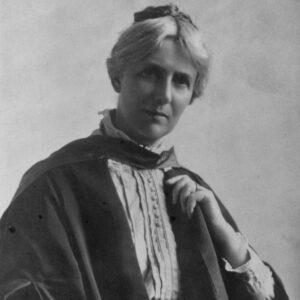
Millicent Mackenzie was a pioneering educationist and suffragist, who – alongside her husband, John Stuart Mackenzie – gave significant support […]